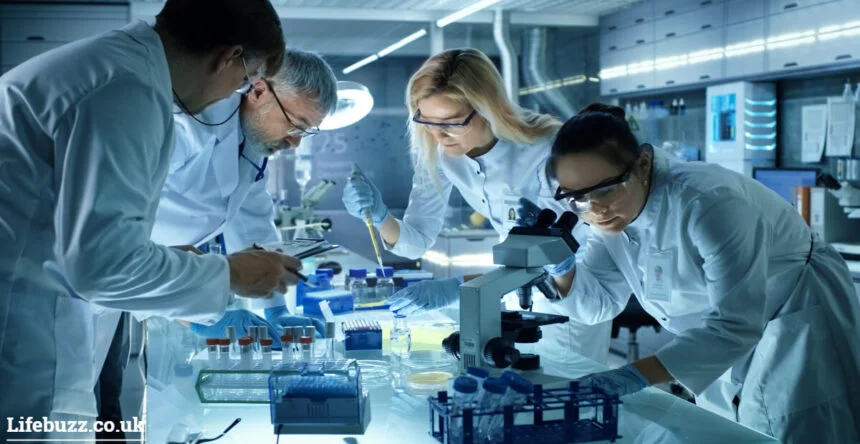Sean Penn’s Health Problems: A Comprehensive Overview
Introduction
Sean Penn, a renowned actor and filmmaker, has had a long and distinguished career in Hollywood, marked by critical acclaim and a variety of high-profile roles. However, his personal life, including his health challenges, has also attracted public attention. This article provides an in-depth examination of Sean Penn’s health problems, exploring the nature of these issues, their impact on his life and career, and the ways in which he has managed them.
Sean Penn: An Overview of His Career
Early Life and Career
Born on August 17, 1960, in Los Angeles, California, Sean Penn is the son of director Leo Penn and actress Eileen Ryan. He began his acting career in the early 1980s and quickly gained recognition for his talent.
- Breakthrough Roles: Penn’s breakthrough came with his role in the film “Fast Times at Ridgemont High” (1982), where he played the iconic character Jeff Spicoli. This role established him as a versatile actor capable of handling both comedic and dramatic roles.
- Acclaimed Performances: Over the years, Penn has received numerous accolades for his performances, including two Academy Awards for Best Actor for “Mystic River” (2003) and “Milk” (2008). His career spans a range of genres and includes directing and producing.
Personal Life and Public Image
Penn’s personal life has often been as headline-grabbing as his professional achievements. His high-profile relationships, activism, and outspoken nature have contributed to his public persona.
- Activism and Philanthropy: Beyond his acting career, Penn is known for his activism and humanitarian work, particularly in relation to Haiti and disaster relief efforts. His involvement in social and political causes has further shaped his public image.
Sean Penn’s Health Challenges
Mental Health Issues
Sean Penn has been open about his struggles with mental health, which have had a significant impact on his personal and professional life.
- Public Statements: In various interviews and public appearances, Penn has discussed his experiences with mental health issues, including depression and anxiety. His openness has contributed to the broader conversation about mental health in the entertainment industry.
- Impact on Career: Penn’s mental health challenges have occasionally influenced his career, including periods of retreat from the public eye and professional projects. His ability to manage and address these issues has been a critical aspect of his resilience and ongoing success.
Physical Health Problems
In addition to mental health challenges, Sean Penn has faced various physical health issues over the years.
- Health Scares and Injuries: Penn has experienced several health scares and physical injuries, some of which have been linked to his active lifestyle and the physically demanding roles he has taken on. These issues have included incidents on set and personal health problems that required medical attention.
- Health Management: Managing these health problems has involved medical treatments, lifestyle adjustments, and periodic breaks from work. Penn’s approach to managing his health has been a balance between continuing his career and addressing his physical well-being.
Public and Media Response
Media Coverage
Sean Penn’s health problems have garnered significant media attention, reflecting both the public’s fascination with celebrities and the media’s role in reporting on personal matters.
- Media Sensation: Reports on Penn’s health issues have often been sensationalized, with headlines focusing on the most dramatic aspects of his experiences. This coverage can impact public perception and contribute to the pressure faced by celebrities dealing with health problems.
- Privacy and Intrusion: The media’s focus on personal health challenges raises questions about privacy and the extent to which public figures should share details of their health. Penn’s experience highlights the tension between public interest and personal privacy.
Public Support and Criticism
The public’s reaction to Penn’s health issues has been mixed, with both support and criticism reflecting broader attitudes toward mental and physical health challenges.
- Support: Many fans and peers have expressed support for Penn, recognizing his contributions to the arts and his bravery in addressing health issues publicly. This support can be a source of strength for individuals dealing with similar challenges.
- Criticism: Conversely, some criticism has emerged, often centered around perceptions of Penn’s handling of his health or the impact of his issues on his career. Navigating public opinion can be a complex aspect of managing personal health in the spotlight.
Coping Strategies and Management
Personal Approaches
Sean Penn has employed various strategies to cope with his health problems, both mental and physical.
- Professional Help: Seeking professional help, including therapy and medical treatment, has been a crucial part of managing his mental health. Penn’s willingness to address these issues openly can serve as a model for others facing similar challenges.
- Lifestyle Adjustments: Making lifestyle changes, such as adjusting work schedules and engaging in activities that promote well-being, has been important in managing physical health. Penn’s approach to maintaining a balance between his career and health reflects his commitment to both.
Impact on Career
Managing health issues has inevitably influenced Penn’s career trajectory.
- Career Adjustments: Penn’s health challenges have sometimes led to changes in his professional commitments, including taking breaks or adjusting the types of roles he undertakes. These adjustments reflect his need to prioritize health while continuing to pursue his career.
- Resilience and Recovery: Despite facing health problems, Penn has demonstrated resilience and a capacity for recovery. His continued involvement in acting and activism underscores his dedication and ability to navigate the complexities of personal and professional life.
Conclusion
Sean Penn’s health problems, encompassing both mental and physical challenges, have been a significant aspect of his personal and professional life. His openness about these issues contributes to broader discussions about mental health and the impact of physical health on career. While media coverage and public opinion can influence perceptions, Penn’s strategies for managing his health—through professional help, lifestyle adjustments, and resilience—highlight his commitment to balancing his well-being with his career. As he continues to navigate these challenges, his experiences offer valuable insights into the realities faced by public figures and the importance of addressing health issues with transparency and support.














Post Comment